Jilin Engineering Vocational College is a provincial public full-time vocational college under the jurisdiction of the Jilin Provincial Department of Education. The school is located in the beautiful hero city - Siping City, Jilin Province. The school was founded in 1958 and is one of the earliest general colleges and universities established after the founding of New China. It has twice held undergraduate education at the beginning of its establishment and in 1978 when the country resumed the college entrance examination. After more than 60 years of development, the school's scale of operation has continued to expand, the level of operation has continued to improve, and the ability to operate has continued to increase. It has been identified as the first batch of national Spark Plan farmer technology training schools, the first Huang Yanpei vocational education excellent school in Jilin Province, Jilin Province's "three-dimensional education" comprehensive reform pilot school, the first batch of national vocational colleges "double-teacher" teacher team construction typical schools, national party building work model branch units, and one of the top 100 rural revitalization talent training schools in the country. The school is the chairman unit of the Jilin Modern Agricultural Vocational Education Group, and has established advanced talent training bases such as the National New Professional Farmer Cultivation Demonstration Base and the National Agricultural Product Processing and Testing Production Training Base. In 2020, the school was rated as a high-level vocational college with characteristics in Jilin Province and 7 high-level vocational professional group construction units with characteristics in Jilin Province. After more than 60 years of historical accumulation and cultural inheritance, the school has always adhered to the school motto of "virtue and skill, unity of knowledge and action", deepened the integration of production and education, school-enterprise cooperation, connected with the needs of economic and social development, and carried out joint schooling with many enterprises, focusing on cultivating high-quality technical and skilled talents, skilled craftsmen, and great country craftsmen who "have ideals, love the country, be civilized, abide by discipline, can endure hardships, stabilize the grassroots, and have strong practical hands-on ability" for the society, and the implementation rate of graduates' destinations remains above 95%. The school has first-class teachers and good school conditions. There are 401 faculty members, including 137 professors and associate professors, 193 teachers with doctoral and master's degrees, 177 "dual-qualified" teachers, and 7 provincial and above teaching masters. The school covers an area of 192,000 square meters and a building area of 100,500 square meters. There are 147 multimedia classrooms, 73 professional laboratories, 22 computer rooms, 2 internship factories, and nearly 200 internship, scientific research, and teaching bases inside and outside the school. The school continues to optimize the talent training model. Relying on eight major professional groups, including grain and food, modern manufacturing, walking equipment, information and communication, biopharmaceuticals, health care, architectural surveying and mapping, and service management, it has established eight colleges, including the College of Grain, Oil and Food, the College of Mechanical and Electrical Engineering, the College of Automotive Engineering, the College of Information Engineering, the College of Bioengineering, the College of Medical Care, the College of Architectural Engineering, and the College of Management. There are 38 majors and 8,213 students on campus. The school trains students according to the major categories of professional groups, and students can flexibly choose their majors (directions). It adopts the talent training model of "one college, two groups, three products, platform + direction, learning by doing, and learning by doing" (each college follows a professional group and an enterprise group structure, creates a brand major (group), introduces at least one brand enterprise (domestic top 500 enterprises), and creates a talent training brand project), implements in-depth cooperation and training with enterprises, participates in the implementation of the 1+X certificate system pilot, and encourages students to obtain corresponding skill certificates. The school has a complete ideological and moral education, integrity education, gratitude education, civilized discipline education, and employment and entrepreneurship education system, which creates conditions and paves the way for students to grow and become talents, and strives to make students successful, parents feel at ease, and the society recognize them. The school has a complete system of awards, subsidies, subsidies, and loans, implements the "Love Project", refines precise funding projects, and builds a comprehensive practice platform that integrates work-study, internships, and job hunting to ensure the needs of students from economically disadvantaged families. The school insists on taking employment into account with the corresponding further studies, and provides conditions for students to upgrade from junior college to undergraduate. The annual pass rate for junior college to undergraduate is about 40%; the school has a Jilin Province Self-study Examination Learning Service Center to carry out self-study examinations. The school encourages students to join the army during their studies, enjoy tuition reduction and exemption and national funding policies, and resume school after discharge. The school focuses on carrying out rich and colorful extracurricular activities in various forms such as academic, scientific, sports, art, and culture. There are 22 college student associations in six categories: theoretical learning, scientific and technological practice, hobbies, physical exercise, culture and art, and public welfare services. The school is moving towards the goal of becoming a first-class higher vocational college in the province with distinct agricultural characteristics.
-

Tsinghua University
-

Peking University
-

Fudan University
-

Wuhan University
-

Zhejiang University
-

Nanjing University
-

Sun Yat-sen University
-

Tongji University
-

Renmin University of China
-

Jahrom University of Medical Sciences
-

Technological Institute of Tlaxcala Plateau
-

Golfo University
-

Technological University of South Sonora
-

Technological University of Huejotzingo
-

Tizimín Institute of Technology
-

Chilpancingo Institute of Technology
-

Technological Institute of Boca del Rio
-
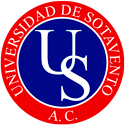
University of Sotavento
-
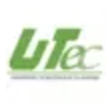
Technological University of Tulancingo
-
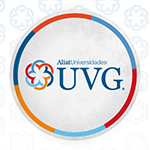
Valle del Grijalva University
-

Technological University of Nezahualcoyotl
-
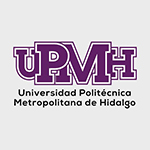
Metropolitan Polytechnic University of Hidalgo
-
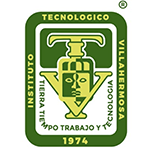
Villahermosa Institute of Technology
-
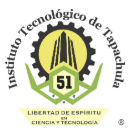
Instituto Tecnologico de Tapachula
-
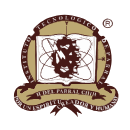
Technological Institute of Parral

